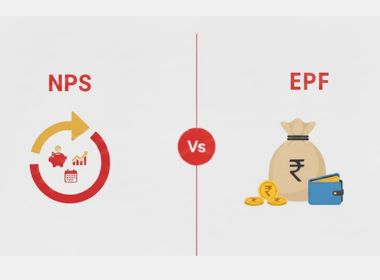Search Suggestions
- Gold Loan
- Money Transfer
- Mutual Funds

Top 5 SIP Plans to Invest in for the Next 10 Years
At present, almost everyone is on the constant lookout for good investment options that can offer good returns with a lower amount of risk involved. Among all the available options, Systematic Investment Plans (often referred to as SIPs) definitely stand out for various reasons. They allow you to make regular investments as per your financial goals while offering a higher ROI as compared to other popular options.
Table of Content
What is SIP?
SIP, or Systematic Investment Plan, is a financial tool designed to make mutual fund investments in a streamlined manner. Here, you can choose a mutual fund scheme and invest a fixed amount at predetermined intervals, which can be weekly/monthly/quarterly/semi-annually, or annually. Simply put, SIPs are somewhat similar to a recurring deposit as you do not have to invest a lump sum amount.
The only difference is that your money is being invested in mutual funds. This is an approach that encourages disciplined investment and is a preferred choice of investors with a low-risk appetite.
Top 5 Types of SIPs to Invest In
Given the number of options available in the market, it can be a little daunting to decide which SIP is best for you. If you’re also making Google searches like ‘best SIP plan for 5 years’ or ‘best SIP plan for 10 years,’ this is where your search ends.
Here are the top 5 systematic investment plans that you can consider:
Regular SIP
This is the most common type of SIP, which is often preferred by both new and seasoned mutual fund investors. In this type of systematic investment plan, you are required to invest a fixed amount of money at regular intervals. If you’re someone with a fixed, predictable source of income, this is undoubtedly the best SIP to invest in. Regular SIPs, as the name suggests, allow you to make consistent investments offering decent returns.
Flexible SIP
After regular SIPs, this is another type that has immense popularity among investors and will be relevant for the next few years as well. These plans are preferred due to the amount of flexibility they offer. In this, you aren’t required to invest a fixed amount every time, and it can be adjusted based on your current financial situation. If there are any fluctuations in your monthly income or expenses, you can increase/decrease the amount. Flexible SIPs are often considered a suitable choice for individuals with variable earnings, as they don’t let their investment portfolio get affected.
Top-Up SIP
Every individual’s investment requirements change over time, depending on financial goals and total income. A top-up SIP is an excellent choice for situations when you want to increase your investment at some point. These systematic investment plans allow you to periodically increase your investment amount by a certain amount. These plans can prove to be beneficial if you’re aiming to invest for your long-term goals.
Perpetual SIP
Generally, systematic investment plans, or SIPs, come with a fixed tenure such as 1, 3, or 5 years, and when the maturity period ends, you need to start again. But a perpetual SIP, on the other hand, continues for an indefinite period until you decide to either make any modifications or stop it altogether. These SIPs are considered ideal for those who want to make mutual fund investments in a consistent manner without having a fixed timeline in mind.
Trigger SIP
Trigger SIPs, as the name suggests, allow investors to decide exactly when they want their money to get invested. This type of SIP is more suitable for seasoned investors who understand market dynamics and want to capitalise on certain market opportunities. Here, you can set up a trigger, such as specific market events or indices, for your investment to take place.
Suggested Read: Best Mutual Funds for SIP Investment in 2025
Conclusion
Just like several other investment options, SIPs do have a ‘one-size-fits-all’ approach. The best SIP plan for you is the one that matches your financial goals and risk appetite. At Muthoot Finance, we offer a wide range of options that can cater to the diverse requirements of investors. Visit your nearest Muthoot Finance branch to know more.
- Insurance
- Group Insurance
- Health Insurance
- Home Insurance
- Vehicle Insurance
- Life Insurance
- Travel Insurance
- Shop Insurance
CATEGORIES
OUR SERVICES
-

Credit Score
-

Gold Loan
-

Personal Loan
-

Cibil Score
-

Vehicle Loan
-

Small Business Loan
-

Money Transfer
-

Insurance
-

Mutual Funds
-

SME Loan
-

Corporate Loan
-

NCD
-

PAN Card
-

NPS
-

Custom Offers
-

Digital & Cashless
-

Milligram Rewards
-

Bank Mapping
-

Housing Finance
-

#Big Business Loan
-

#Gold Loan Mela
-

#Kholiye Khushiyon Ki Tijori
-

#Gold Loan At Home
-

#Sunherisoch
RECENT POSTS

Understanding Gold Bees: How it Works, Net Asset Value, Returns and More
Know More
Multi Cap and Flexi Cap Mutual Funds: How Are They Different?
Know More
Online Personal Loan vs. Offline Personal Loan - Which Is Better for You?
Know More
10 Tips to Improve Chances of Personal Loan Approval
Know More
10 Factors Affecting Mutual Fund Performance Explained Simply
Know More
10 Key Factors That Affect Your Personal Loan EMI
Know More
What Is Fine Gold? Meaning, Purity (999), Uses & Price Explained
Know More
Gold vs Silver: Which is Better as an Investment?
Know More
Why Gold Is a Safe Haven Asset: Meaning, Benefits & Real Examples
Know More
Gold or Bitcoin - Best Investment for Value Retention
Know MoreFIN SHORTS

The Best 7 SIF Funds of 2026: A Better Way to Invest
Know More
Gold Price Hits ₹1,40,000: How It Impacts Gold Loan Amounts
Know More
How to Check Loan Number: Step-by-Step Process
Know More
How to Open an SIP Account: Online and Offline Process
Know More
How Do I Apply for MSME Certification Online in India?
Know More
7 Important Reasons to Choose Hallmark Gold When Buying Jewellery
Know More
What Are Co-Pay and Deductibles in Insurance Policies?
Know More
Should You Take a Loan Against Your Mutual Fund or SIP?
Know More
Top 5 Best Mid-Cap Mutual Funds to Watch in 2026
Know More
Are Personal Loans Right for Retirees? Key Points to Consider
Know More
What Happens to a Personal Loan After the Borrower Dies?
Know More
Best Loan Choices for Credit Scores of 580 and Below
Know More- South +91 99469 01212
- North 1800 313 1212





